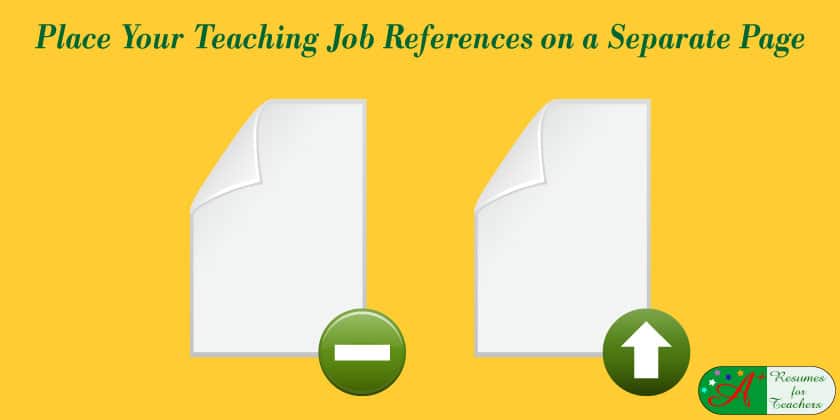Job references are not included in your resume if you are searching for employment in North America.
Your teaching resume and cover letter are your chance to tell potential school district representatives the value you can bring to their school district.
If the resume impresses the employer, you’ll get a chance to say even more about yourself and your great qualities at the job interview. But at some point, employers will want to find out what other people feel about your abilities and qualities.
This is where your teaching job references will come into play. There isn’t a much more effective marketing resource for yourself than your references.
Although a strong teaching or principal resume and cover letter are your best chance of initially attracting a district’s interest, your references are so powerful since they provide positive information about you from someone other than yourself. Take the task of selecting your references seriously.
In your resume and cover letter, you can make all sorts of claims about how great you are, but it’s not until someone else can back up these claims that an employer will know if they are true.
A potential school district will ask you to supply them with a list of references so they can speak to other people about your past work experience, education, and personal traits to find out if you are the right person for the job, as well as if what you’ve written in your documents is true.
This is invaluable information to a potential employer. With such a powerful tool like your references in your back pocket, it is important to know how to release this information to an employer.
List your job references on a separate sheet of paper from your resume unless the school district specifically states otherwise.
Since the main reason an employer should contact your references is to verify the information you’ve provided them with and delve deeper into what you have to offer, your references are meant to be used after an interview. This means that you should not be handing out your references until asked at an interview. Your references are your secret weapon, so you should protect them until the moment they’re needed.
If you give out your references too freely or even place them on your resume, you may run into trouble with the people you’ve asked to speak on your behalf. If your references are contacted too often, they could get annoyed or upset, and you don’t want to upset the very people that are helping you out.
As your reference information is somewhat private contact information, you will want to be protective of this, only revealing them at an interview for an employer for whom you want to work.
If you need our help to create a resume and cover letter package specifically for you, it’s easy. Review packages available.


